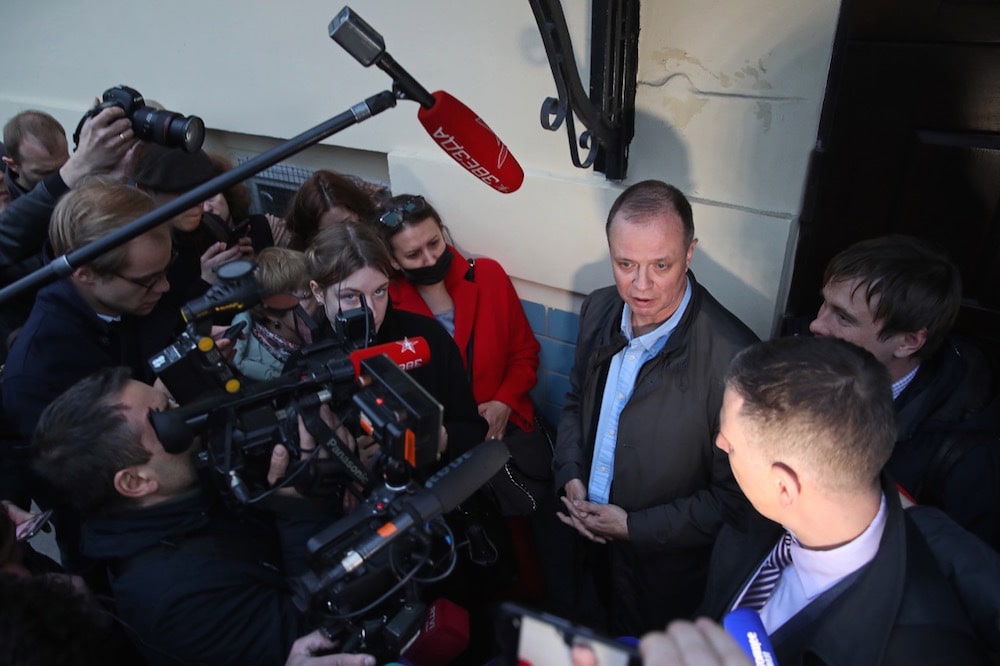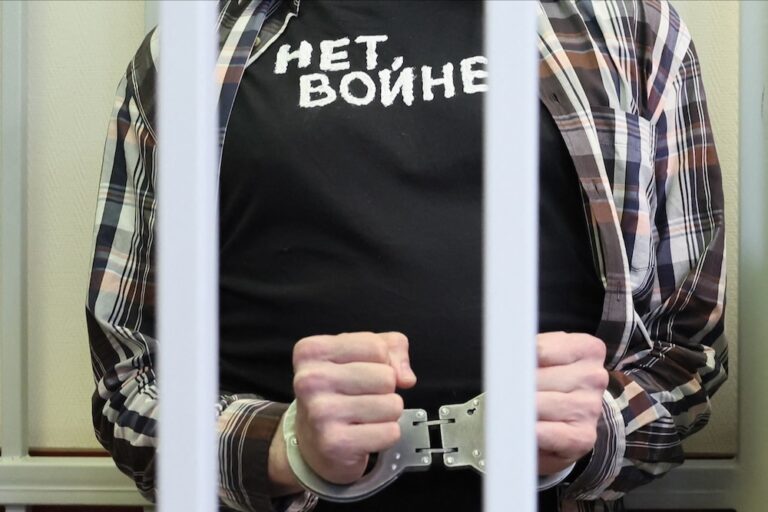Pavlov, who is charged with disclosing details of a preliminary investigation which has been declared secret, most recently defended Alexei Navalny's Anti-Corruption Foundation against criminal accusations of extremism.
7 May 2021
To Whom It May Concern:
We, the undersigned organisations and individuals, express our solidarity with Ivan Pavlov, a Russian human rights activist and lawyer, who has been charged under Article 310 of the Russian Federation Criminal Code which makes it a crime to disclose data of a preliminary investigation which has been declared secret.
Pavlov was detained on Friday, 30 April 2021, and, although he was later released by order of a judge, he has been banned from using the telephone or Internet. His hotel room in Moscow and home were also searched by Russia’s Federal Security Services (FSB), the main organisation to emerge as a successor to the KGB. Breach of Article 310 can lead to a fine or harsher sanctions, such as corrective labour for a term of up to two years. But the real aim may be simply to ban Pavlov from working as a lawyer.
It is not difficult to understand this as a possible motivation for the Russian authorities, given Pavlov’s long-standing and effective career as a human rights advocate. Among other things, he heads Team 29, a legal defence organisation that is named after the article in the Russian Constitution which guarantees freedom of expression and the right to access information held by public authorities or the right to information. Pavlov has also been an active member for many years of the Freedom of Information Advocates Network (FOIAnet), the leading global network of right to information activists.
The most immediate reason for the Russian authorities going after Pavlov was likely Team 29’s role in defending Alexey Navalny’s Anti-Corruption Foundation (FBK) and campaign offices against criminal accusations of advocating extremism. Those charges represent an expansion of the crackdown against Navalny, who was imprisoned immediately following his return to Russia in January 2021. The measures against Pavlov are especially concerning since, until now, lawyers had largely been free to defend their clients, even as government measures against the opposition have intensified.
There is perhaps a certain irony to Pavlov being charged under Article 310 given his consistent struggle against undue secrecy, including in the criminal justice system. Indeed, just the day before he was charged Pavlov accused the authorities of abusing secrecy rules in the extremism case and filed a legal case to declare those materials public.
These actions against Pavlov represent a blatant abuse of his rights to freedom of expression and criminal due process, as well as, more generally, the rule of law, including respect for the independence of lawyers. We call on members of the international community to do all that they can to defend Pavlov’s rights and, by extension, those of all Russians.



